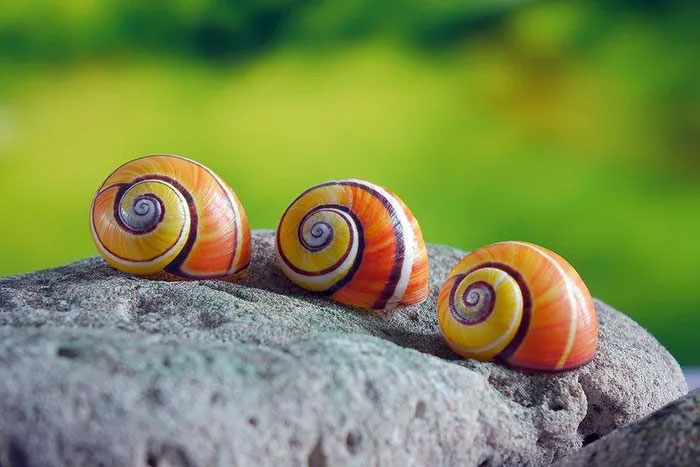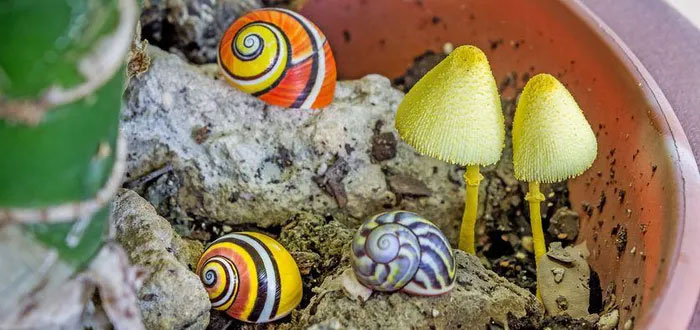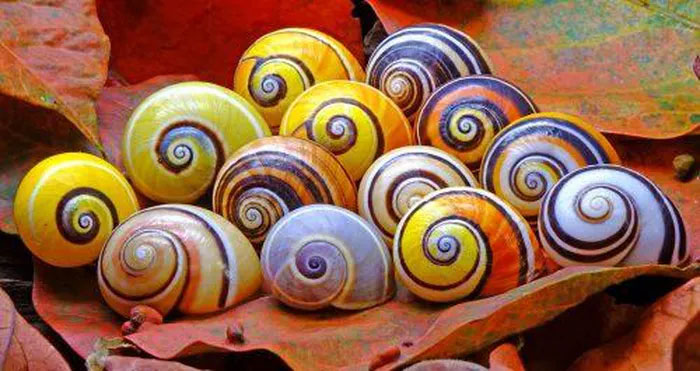Among the approximately 1,400 land snail species found in Cuba, six species belonging to the genus Polymita, affectionately known as the painted snails, are considered the most beautiful snails in the world.
Cuban snails boast shells adorned with vibrant colors, with no two snails being exactly alike. They are truly masterpieces of nature. Due to their stunningly colorful shells, which are highly sought after by collectors, all six species of Polymita snails are currently classified as critically endangered.

They are truly masterpieces of nature.
The shells of Cuban snails come in a variety of colors, ranging from pearly white to pale yellow and brick red, with each species exhibiting unique spiral designs and markings. Interestingly, color variations occur not only between different species of painted snails but also among individuals of the same species.
Some believe that the differences in color are an evolutionary trait designed to confuse predators, making it difficult for them to target specimens of a particular species.

The shells of Cuban snails come in a variety of colors.
Cuban painted snails inhabit a very narrow band of vegetation along the eastern coast of Cuba, where they feed on lichen and mineral-rich moss that gives their shells their beautiful appearance. Due to their relatively small habitat, these mollusks are particularly vulnerable to threats from coffee growers clearing land, as well as native and invasive predators and climate change.
However, the most concerning reason why Polymita snails are classified as “critically endangered” is due to poaching. There was a time when locals collected painted snail shells as souvenirs, putting this mollusk species at risk of extinction. Currently, collecting painted snails for sale in Cuba or for export is strictly prohibited.

This species is classified as ‘critically endangered’ due to poaching.
To protect these beautiful snails, the Cuban government plans to increase penalties for violations of the ban on snail hunting and establish separate reserves according to international standards.


















































